This week we bring you a final installation of our series featuring Lithuanian writers inspired not only by these excellent writers, but because the Baltic countries are is this year’s Market Focus at the London Book Fair.
This excerpt of Darkness and Company is by the prolific Sigitas Parulskis. With a healthy sampling of Plato, this piece explores questions of photography, truth, and beauty as a young photographer goes in search of the perfect light to capture a horrific scene of violence and death during the Holocaust. The jarring and unsettling nature of this piece gives us a taste for the rest of Darkness and Company and reveals an incredibly talented writer.
This showcase is made possible by Lithuanian Culture Institute.
The word ‘angel’ was scrawled on the blackboard in chalk. The rest of the sentence had been erased. Angel of vengeance, angel of redemption—it could have been either one.
He got up quietly so as not to awaken the other men and went out into the yard. He couldn’t see the guard, who was probably off dozing somewhere. The Germans were staying at the local police station; the brigade was sleeping in the town’s school. After a night of festivities at a local restaurant, most of the men were indistinguishable from the mattresses spread on the floor.
Vincentas stuffed his camera into his coat and headed off in the direction of the forest. He looked at his watch and saw that it was five in the morning. The sun was just coming up—the best time of the day if you wanted to catch the light. To capture the idea of light, as Gasparas would say. Where could he be now? Underground, probably; still wearing his thick-lensed glasses. Lying in the dark, trying to see the essence of things with his myopic eyes. His grey beard sticking up, his thin hair pressed to his forehead in a black band. Although short-sighted and ailing, he had been a strange and interesting person. His photography students called him by his first name, Gasparas. The photographer Gasparas. It was from Juozapas that Vincentas had first heard about photography, that miracle of light. While still a teenager he had read a few articles and a small book called The Amateur Photographer, and then, when he turned eighteen, he had bought his first camera, a used Kodak retina. But it didn’t go well, so he had found Gasparas. Without his thick-lensed glasses Gasparas couldn’t see a thing. He would take them off, look straight ahead with his strange, empty eyes and say, ‘Now I can see the real world.’



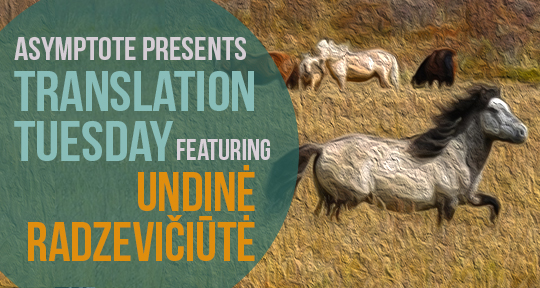


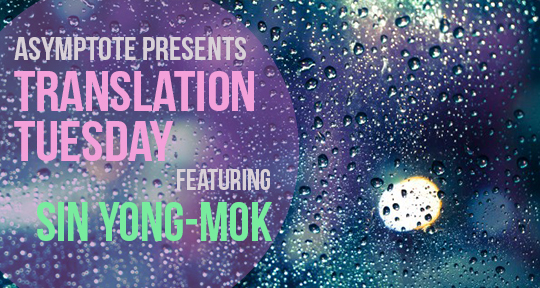
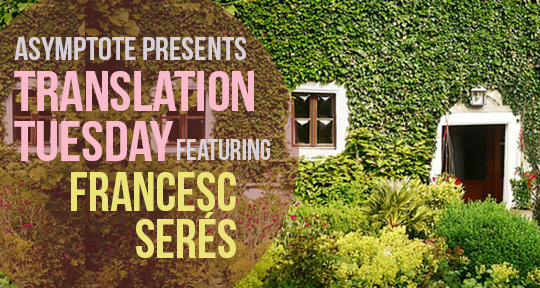


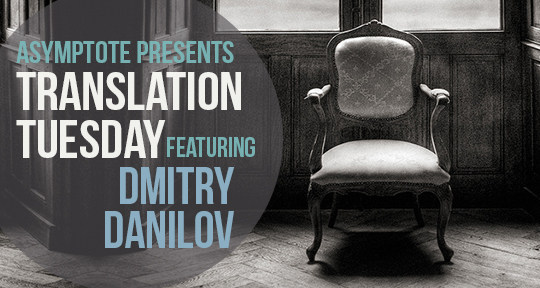

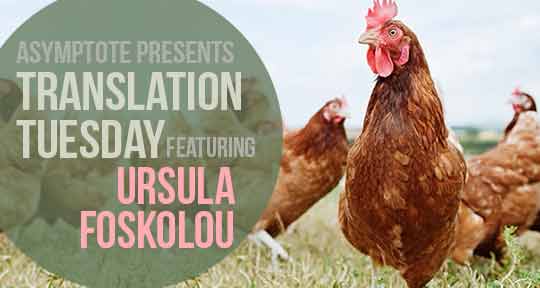

Translation Tuesday: “The Results” by Bernard Comment
"Jealousy is always a weakness, an uncertainty, a lack of confidence, every other person is a competitor, a threat."
On a check-up at a health clinic, a father and husband’s interactions with doctors are punctuated by reminiscences of love and lust for his wife. Gradually, we learn of a chilling act of violence, which leads the protagonist to a twisted reckoning with his mental and physical condition.
It’s cold. A cold that bores into you, that hasn’t let up for days, despite the big woollen jumper I never take off, even at night. Carlo tells me I should take it off for sleeping, and wrap myself up well in the blankets, so that when I get up I would add a garment to make up for the change in temperature, but one evening I tried this and my teeth chattered all night. The other men I see at lunchtime don’t seem to suffer, there’s even a guy who always walks around in a T-shirt, but admittedly he’s a burly fellow, well-padded against the cold.
The doctor made me go back to him this morning, after fasting, he wanted to do further tests, two whole syringes filled with blood, I asked to lie down because I’m always afraid of turning to look, and it’s much worse if you get to see it. The nurse smiled, although I couldn’t tell if it was from pity, sympathy, or scorn. She had difficulty finding the veins, it’s always the same, I begin to tense up, to sweat at the temples, I become dizzy and pale; when I was a teenager I passed out each time, and once I fell backwards and hit my head on a sink, was sent straight to hospital for a battery of tests, a lumbar puncture, and an idiot teacher spread it around that I’d taken an overdose, me who’s never touched the tiniest amount of an illegal substance, for fear of my reaction, and my scrupulous respect for the law.
When I had the first tests, eight months ago, the lady in the laboratory was very considerate, settling me into an armchair and telling me to look away, and to think of something pleasant; so I thought about the film I’d watched the night before, with Julie, her warm body, her breasts in my hands, her smell after making love. Then it was finished, and already I had a piece of cotton wool and then a sticking-plaster on top, whereas here everything is rougher, more brutal. I’ve been waiting for twenty minutes, standing in front of the grey door. They came to get me around six o’clock. Immediate appointment. Everything moved fast, then the iron door in the corridor clanged shut behind me, with a heavy ringing sound, and since then, nothing. The doctor must be on the telephone, I hear his voice at times, a powerful, raucous voice, but I don’t understand what he’s saying, the rooms are well insulated. I’d love to smoke a cigarette, it’s what I’ve been brooding about for a full five minutes, it’d do me good, would relax me, smoking a cigarette.
READ MORE…
Contributors:- Bernard Comment
, - Carolyne Lee
; Language: - French
; Place: - Switzerland
; Writer: - Bernard Comment
; Tags: - clinic
, - condition
, - family
, - french
, - health
, - hospital
, - love
, - lust
, - marriage
, - Short Story
, - Swiss